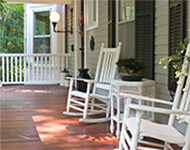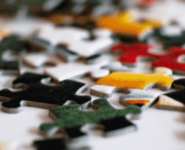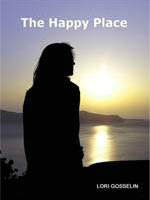Have You Ever Felt Alone in a Crowd?

A World Yearning for Community
Have you ever found yourself feeling lonely and were confused by that because you’d just gone to a party the night before? Have you ever been out with a group of friends or colleagues and thought, it’s like no one here even knows me? Have you ever been at a family gathering and felt that way?
This is actually more common than you might think.
Too often, in fact, most often, social gatherings just provide ‘social noise’, a flimsy substitute for the thing we most want and need in life; authentic connection.
This article from Harvard Magazine says
Social psychologists define loneliness as the gap between the social connections you would like to have and those you feel you experience.
Loneliness has become prevalent in our world but why now, suddenly? Or is it sudden at all?
I believe we have experienced three significant shifts in our human evolution that are contributing to our increased state of loneliness today.
Community of the Past
In the past, people formed communities naturally as early settlers struggled to make their way in life, or immigrants gathered to share familiar customs. And let’s not forget our cave-dwelling ancestors who banded together because, for them, being without community meant certain death.
Because people rarely moved or traveled far from home, they had the support of family members nearby, and people got to know their neighbors more. A social connection wasn’t just a one-shot, monthly Pot Luck gathering; it was a daily brand of connection where people shared their lives with those in proximity to them. Human beings need this connection.
This article in Psych Central says,
Through the years, we’ve thrived as a species by connecting with others.
Today, our situation is different in so many ways:
- Few people live close to family members anymore.
- We rarely have those close relationships with our neighbors; we’re too busy.
- Few people are at home during the day to enjoy a friendly chat with a neighbor over the fence.
- Many, if they are at home, are working there and missing out on the connections that used to be forged in the workplace.
- Our reliance on others has been side-tracked by the belief in the necessity of fostering self-reliance.
In the past, community building was a necessity, it increased our chances of survival but today community building meets a different need. Our need for community is no longer physical; it’s emotional. Our high loneliness, addiction, and suicide rates today more than suggest that these authentic connections are necessary for our survival.
Community building occurred organically in the past. It comes about now only with effort and intent; we’ve never had to learn how to nurture these authentic connections before.
“Community” of the Present
Another reason for our loneliness today is something that keeps us from seeking authentic connection – the fact we believe we already have it. Social media distorts our perception of reality. If we have 357 friends online, we may believe our friendship/connection department is covered. But is this really the case?
We need to see each other, we need to look at each other, we need to hear each other’s voices… these micro-moments of connection release oxytocin, which is a neural hormone and powerful antidepressant.
If social media alone satisfied our need for connection, based on the number of hours we spend there, none of us would ever feel lonely.
The Pandemic
The third reason for our loneliness is the lingering impact of pandemic restrictions. We became so accustomed not only to being apart from loved ones but solitary that many have not returned to the social life they had before 2020. We got used to spending more of our time alone. It’s not necessarily a bad thing to spend time alone, but human beings need social connections too – real connections; community connections.
This is worth repeating: Social psychologists define loneliness as
the gap between the social connections you would like to have and those you feel you experience.
This is why we can feel alone in a crowd, even if the crowd is made up of family or friends.
Misconceptions about Community Building
Event planning and hospitality are not community building. It comes down to this: if putting people in the same office, apartment building, neighborhood, gym, classroom or place of worship was enough to build community, we would already all be in community all the time. It’s not enough. Event planning and hospitality efforts often only serve to increase the social noise – and our sense of loneliness.
Let’s Do Something About It
We can’t just accept that this is “the way it is”. People are least likely to reach out to others when they feel lonely. It may come down to us to do the reaching out. But what can we do?
We can learn to build community (there is more to it than you’d imagine).
But no worries – I’ve spent nine years decoding and breaking down the community-building process. I can teach you how to build Community.





 Welcome to Life, for instance!
Welcome to Life, for instance! “Lori shares plenty of feet-on-the-ground advice and techniques for forming and fostering community... The newcomer to community building will get a solid foundation, and the experienced community builder will find a useful framework as well as some new tools for the toolbox.”
“Lori shares plenty of feet-on-the-ground advice and techniques for forming and fostering community... The newcomer to community building will get a solid foundation, and the experienced community builder will find a useful framework as well as some new tools for the toolbox.” "Lori has put together a real
page turner of a book. With
great humility Lori has woven
together a very insightful
personal story of transformation...
and in the process has put
together a doable set of steps
that anyone can do and
follow to their own happy place."
"Lori has put together a real
page turner of a book. With
great humility Lori has woven
together a very insightful
personal story of transformation...
and in the process has put
together a doable set of steps
that anyone can do and
follow to their own happy place."






